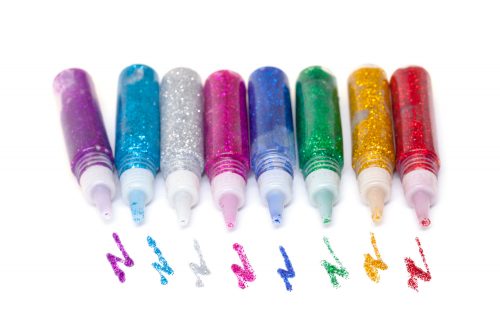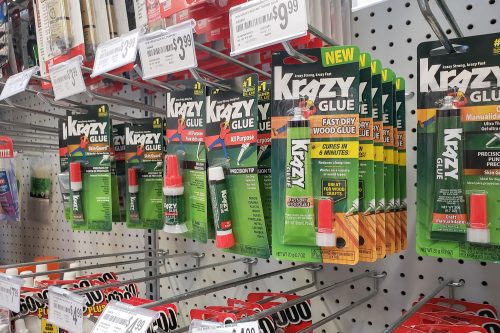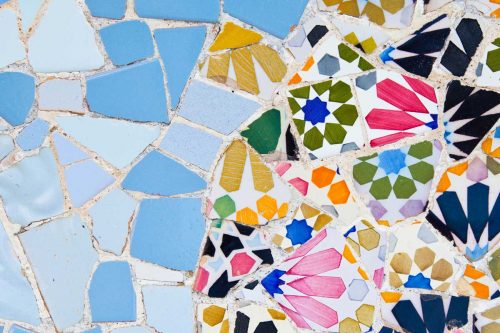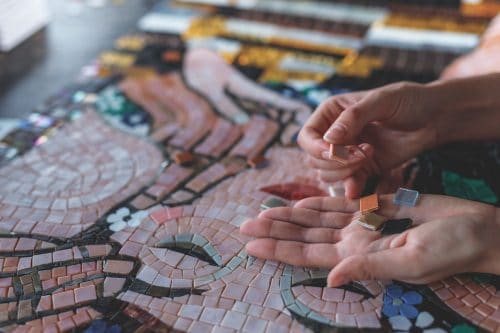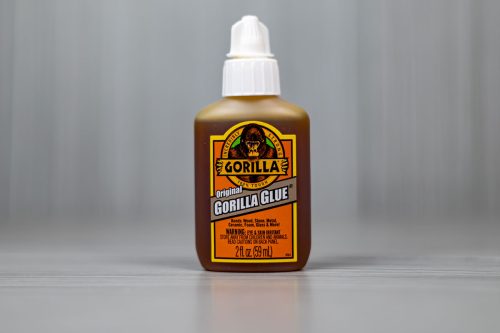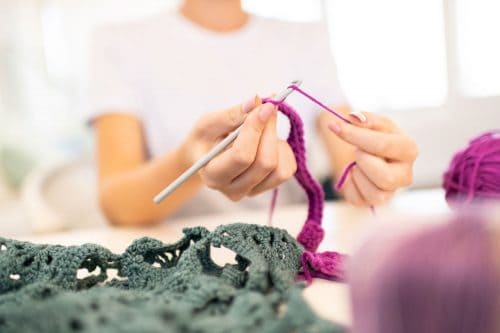Junk drawers; we all have them. Many things may lead you to a hunt in your junk drawer. One of which might be the need to repair a broken nail. Nail glue is the preferred method, but if you don't have any nail glue lying around, you might wonder if you should give gorilla glue or superglue a try.
It is possible but discouraged to use Gorilla Glue or super glue on your nails. Nail glue is undoubtedly the better option as it was designed for use on the human nail. Other alternatives to nail glue can create bacteria collection and potential infection, not to mention the mess it can make.
This article will compare nail glue, superglue, and gorilla glue. We will also delve into why we do not suggest using anything other than nail glue on your nails. It is essential to be safe and use products based on their design. Let's get started!
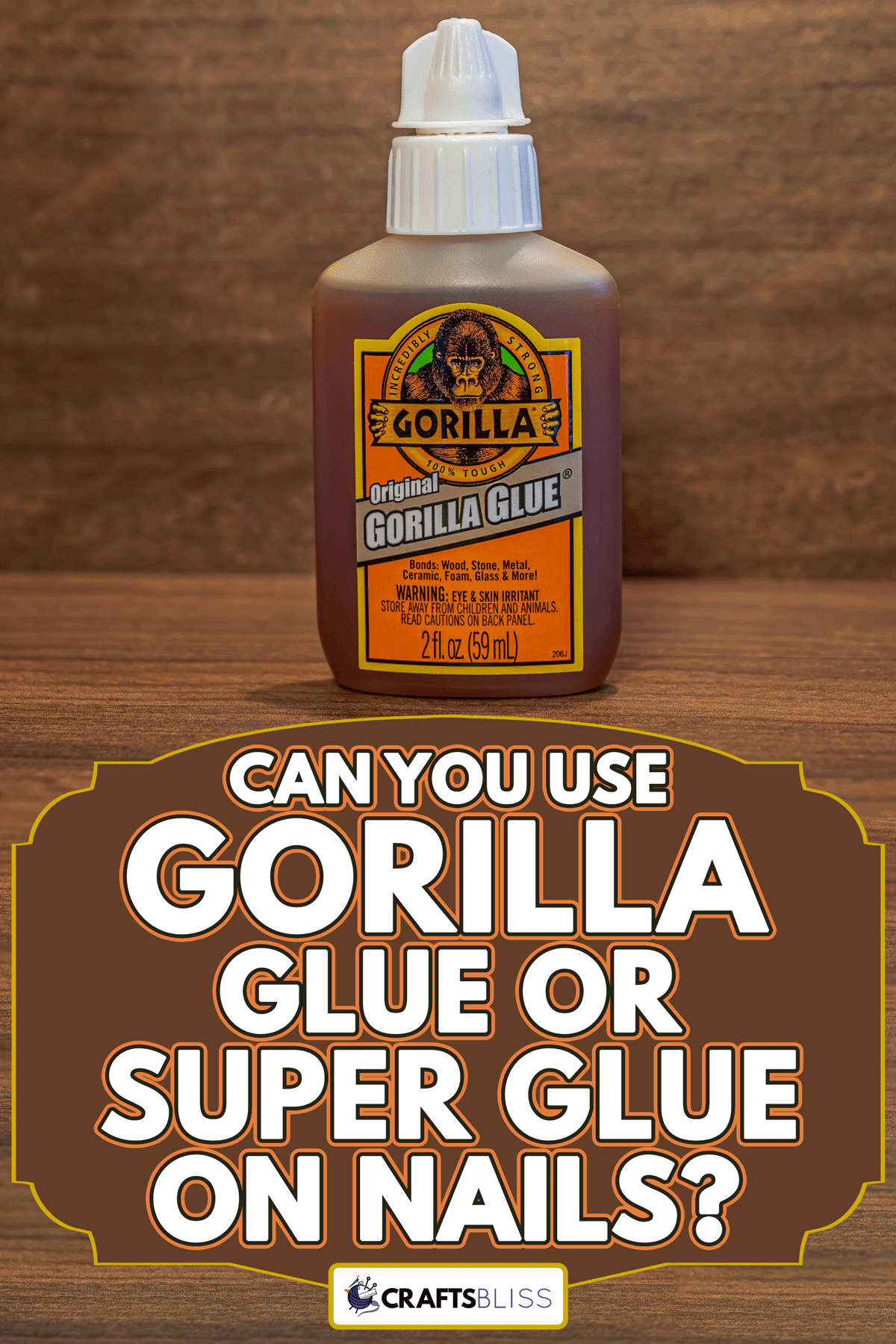
Reasons Why You Might Need Nail Glue:
We want this article to be all-encompassing of your needs for glue. To do so, we must address the different possible reasons for using nail glue.
For one, [the more obvious answer], you might have a broken nail. This can mean either your natural nail or a false nail.
There are many false nail options such as press-on, dip powder nails, acrylic nails, gel nails, etc. You might need to glue a crack or breakage, or you might need to glue the whole nail back on. Either way, using something safe for your body is a priority.
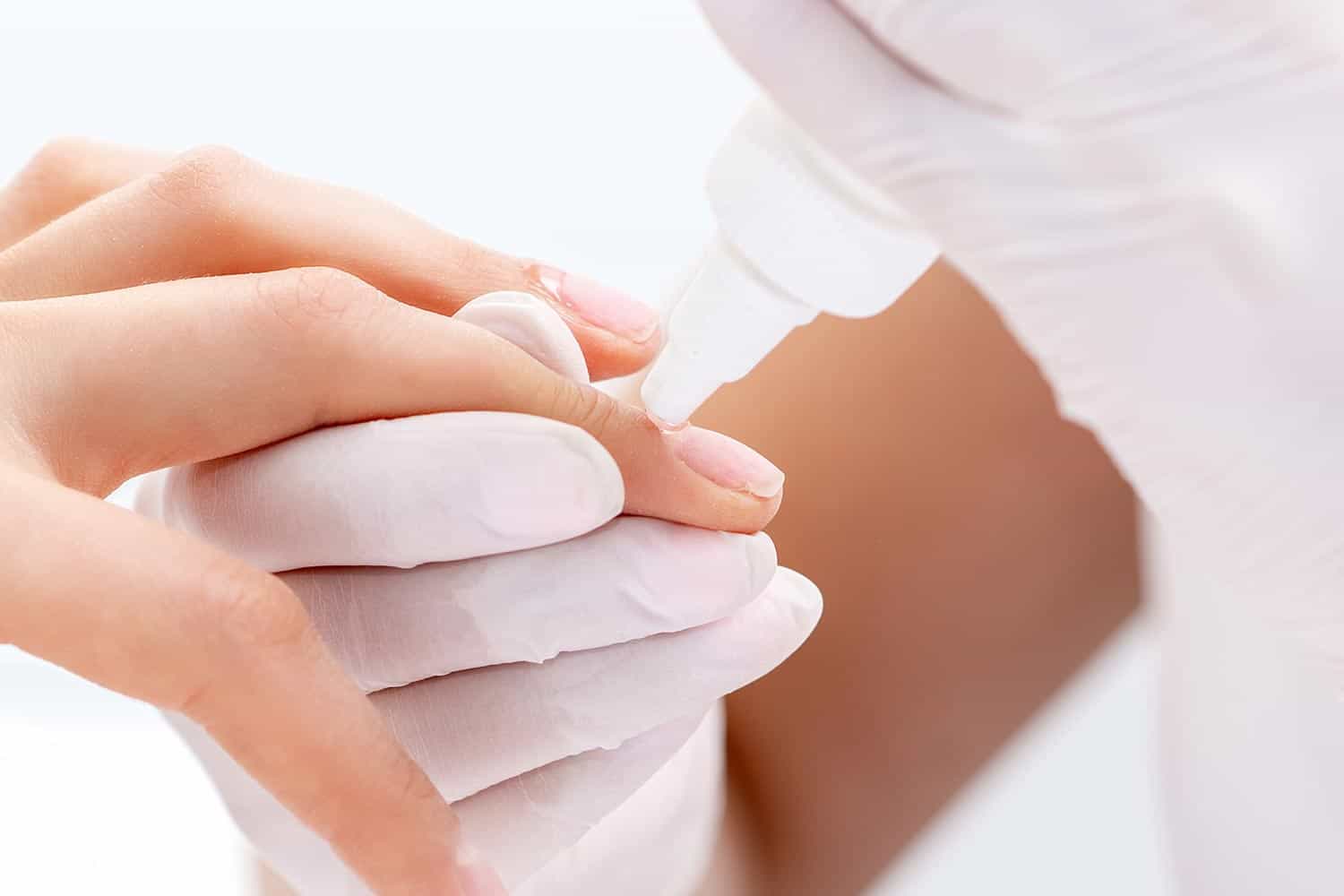
Another reason you might need to use nail glue is a broken toenail. You might not think acrylic toenails are very popular. Still, the occasional fix with acrylic, or the need for a more manicured nail than a natural toenail, are more common situations than you might think.
This article will synonymously explain the pros and cons of using anything but nail glue on any human nail situation, including toes! So do not hesitate to apply our knowledge to your toenail situation.
What Are These Glues Made Of? [Nail glue, Superglue, and Gorilla Glue]
Nail glue, superglue, and Gorilla Glue are made mainly of a recipe of alcohol, cyanoacrylate, or photo-bonded methacrylate.
Cyanoacrylate is defined as a class of compounds that are cyanide derivatives of acrylates. Cyanoacrylates are used as an adhesive that sets quickly. This makes a whole bunch of sense because nail glue, superglue, and gorilla glue never take days to dry. Minutes seem a little bit more appropriate as a time frame.
Photo-bonded methacrylate is defined as a lightweight synthetic polymer. Photo-bonded methacrylate is safe because it does not contain properties such as bisphenol-A, which is less economical and more dangerous for human use.
Combining these polymers and compounds with the addition of alcohol creates glue. Being aware of the contents of a product you are using can help you make better decisions on what is acceptable to use on yourself.
Nail Glue vs. Superglue
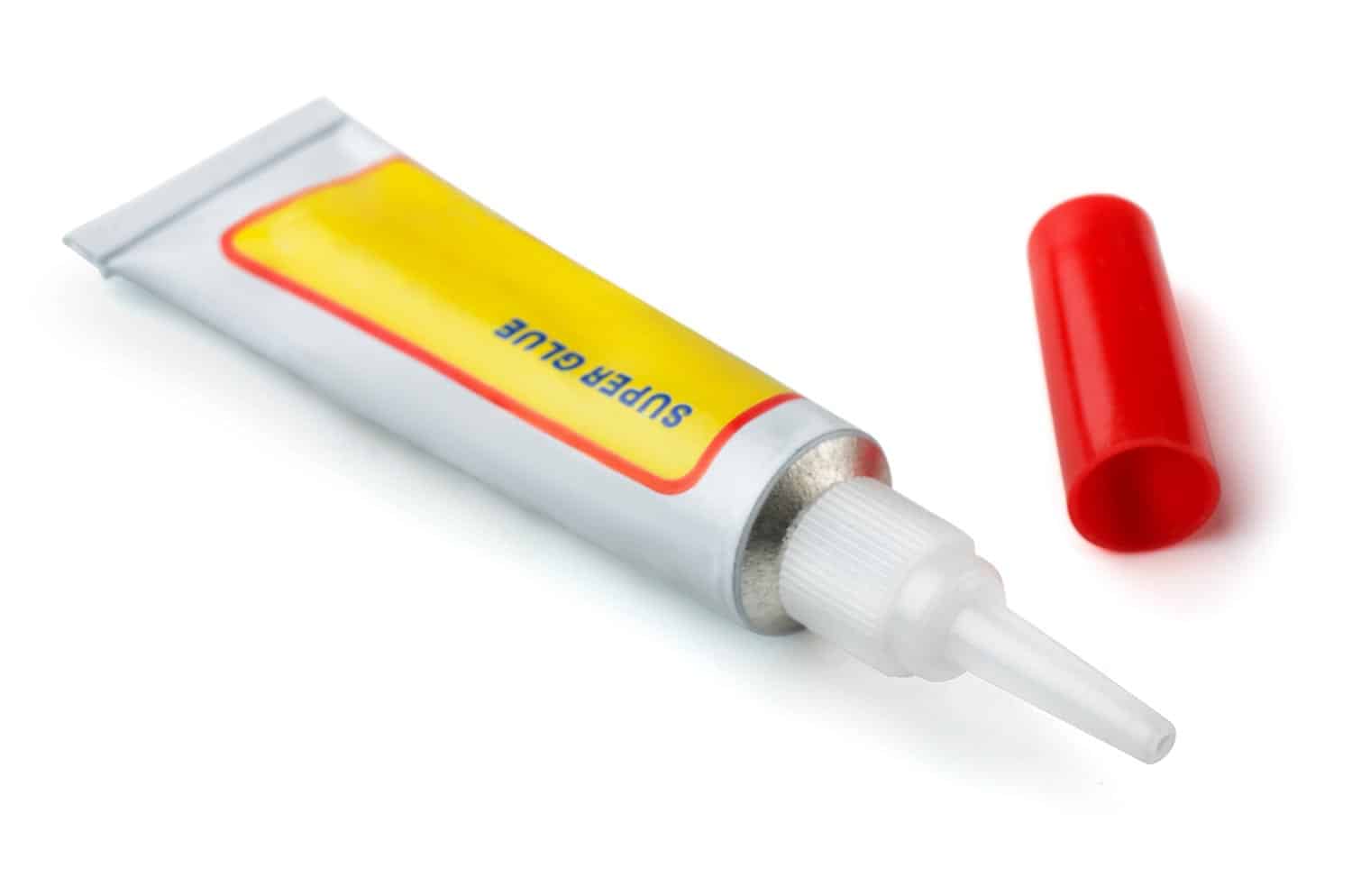
The main difference between these two is that one was designed for use on humans, and one was not. You guessed it! Superglue was not created with human use in mind.
For many reasons, superglue is not human-use-friendly. The first reason is what is called an etching agent. An etching agent is a property of the recipe of superglue that roughens up the surface by breaking it down. This is done because superglue holds best when two rough surfaces are bonded by the glue rather than two smooth ones.
Another reason superglue is not human-use-friendly is because of the damage it does. The main part of this disaster is the etching agent. This agent disintegrates and breaks down your nail bed. It eats away at your nail, which you can't feel because your nails are dead, and leaves them weaker than ever. Nail glue, on the other hand, won't irritate your skin the same way superglue can.
Superglue is also less preferable to nail glue because it doesn't last as long. Over time, superglue weakens. This process is sped up by moisture. When superglue meets moisture, [which happens when we wash our hands, wash dishes, are watering the garden, etc.], the moisture deteriorates the strength of the glue, which can potentially cause it to lose all effect.
In terms of cost-effectiveness, it is found that superglue is cheaper than nail glue. There are more harmful properties of superglue which might be why nail glue is more expensive. Overall, nail glue will do a better job for broken nails. Pay the extra couple of bucks; it'll be worth it.
Nail Glue VS Gorilla Glue
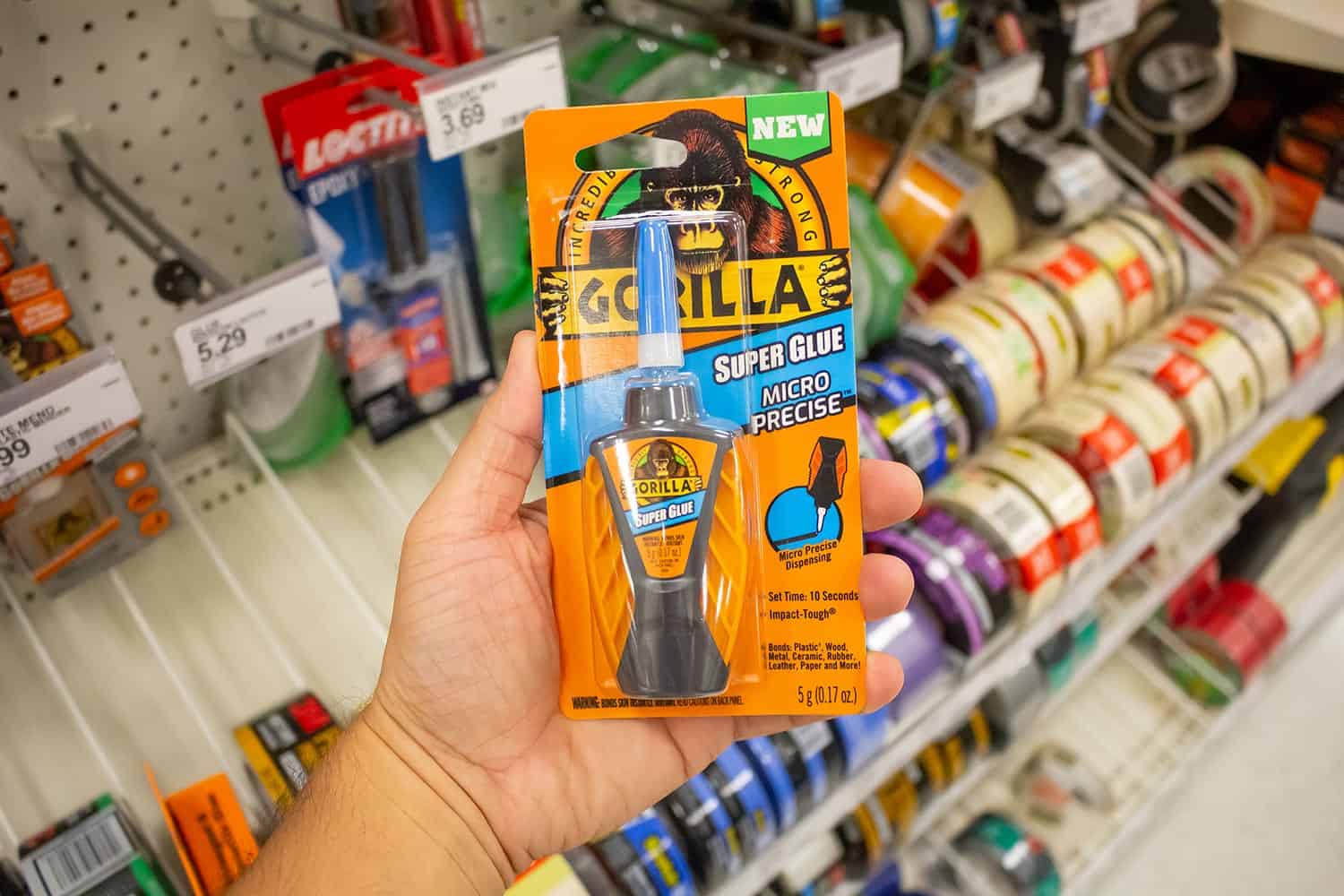
Gorilla Glue is no better than super glue. Actually, yes, it is much stronger than superglue. But, for this article, using gorilla glue in place of nail glue is no better than using superglue and is undoubtedly not recommended.
Gorilla Glue is Gorilla Glue because it is the strongest. This glue could keep together a pair of semi-trucks if it had to! (Not really, but who is asking). This means it is too strong for your nails.
If you need Gorilla Glue to glue two semi-trucks together, look here on Amazon.
More On Gorilla Glue
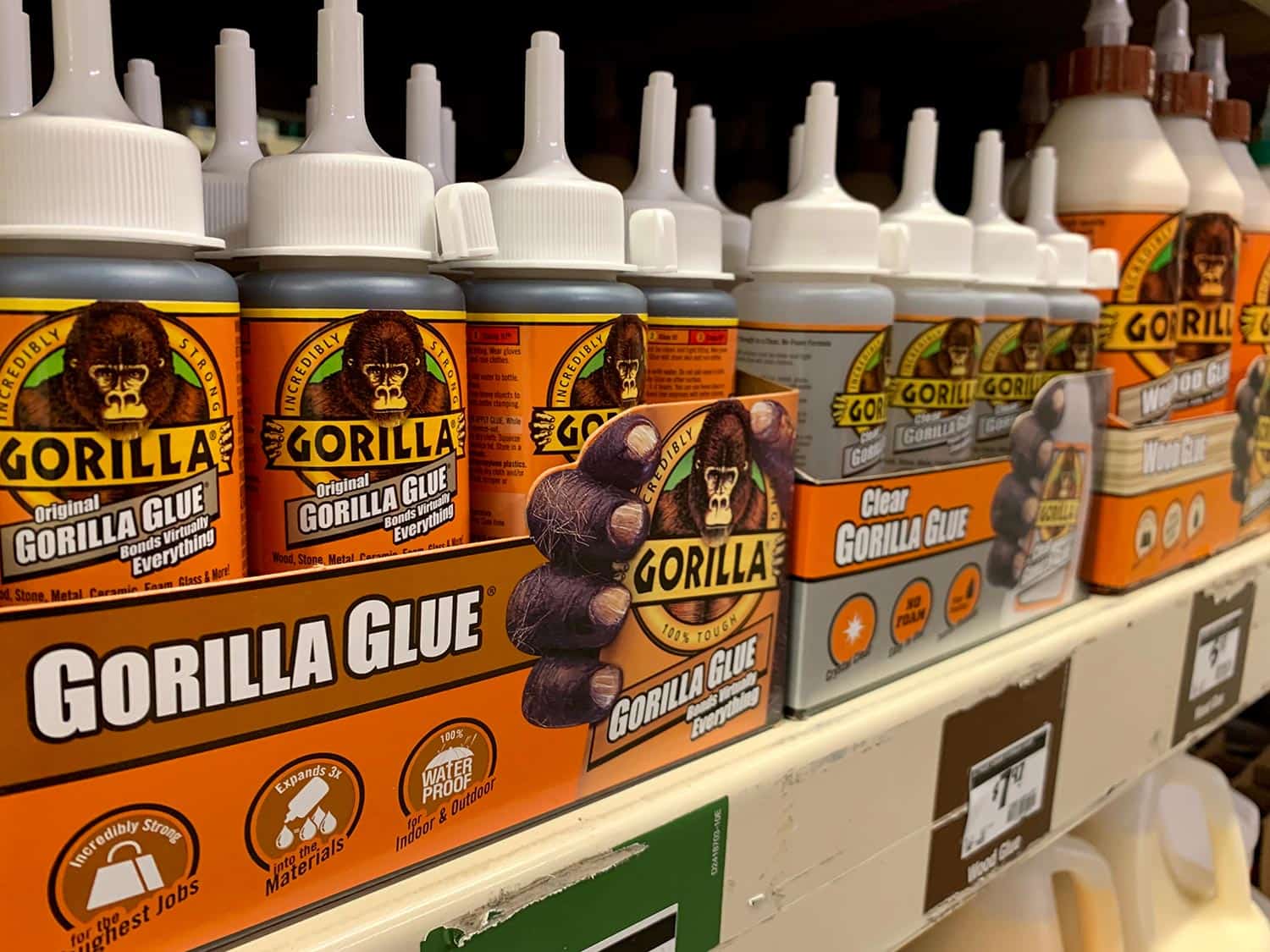
Yes, being too strong to use for your nails is a thing. The avid strength of this glue makes it too difficult to remove. When applied because of a strong etching agent, it also creates damage, just like super glue.
Nail glue does not have an etching agent in it. It was designed with nail use in mind. With that being said, most nail techs, and other nail glue users, are their own etching agents. Rough up the surface of your nail with a file to create a texture that the glue can hold on to.
Gorilla Glue is also dangerous because of what happens when it meets moisture. Just like superglue, Gorilla Glue and water and moisture are not friends. Water will weaken the glue. But, on a more serious note, when Gorilla Glue meets water, it will expand and might cause bubbles.
We don't want bubbles on our nails- that is not cute! For two, the expansion of Gorilla Glue when it meets water will allow bacteria and dirt to come in and get comfortable. It is challenging to address bacteria growing in old glue. The best thing to do is remove the glue, [or don't use it in the first place].
For two, the bacteria and germs growing in the glue can cause an infection. This is not always the case, but it is very probable. These are some of the realistic effects of using something on your body that was not designed for your body.
More On Nail Glue
Nail glue, which was designed with humans in mind, is preferable for use. Nail glue may not hold semi-trucks together, but it is strong enough for your nails. It will not disintegrate your nail bed, and it will not create bubbles and room for bacteria or infection.
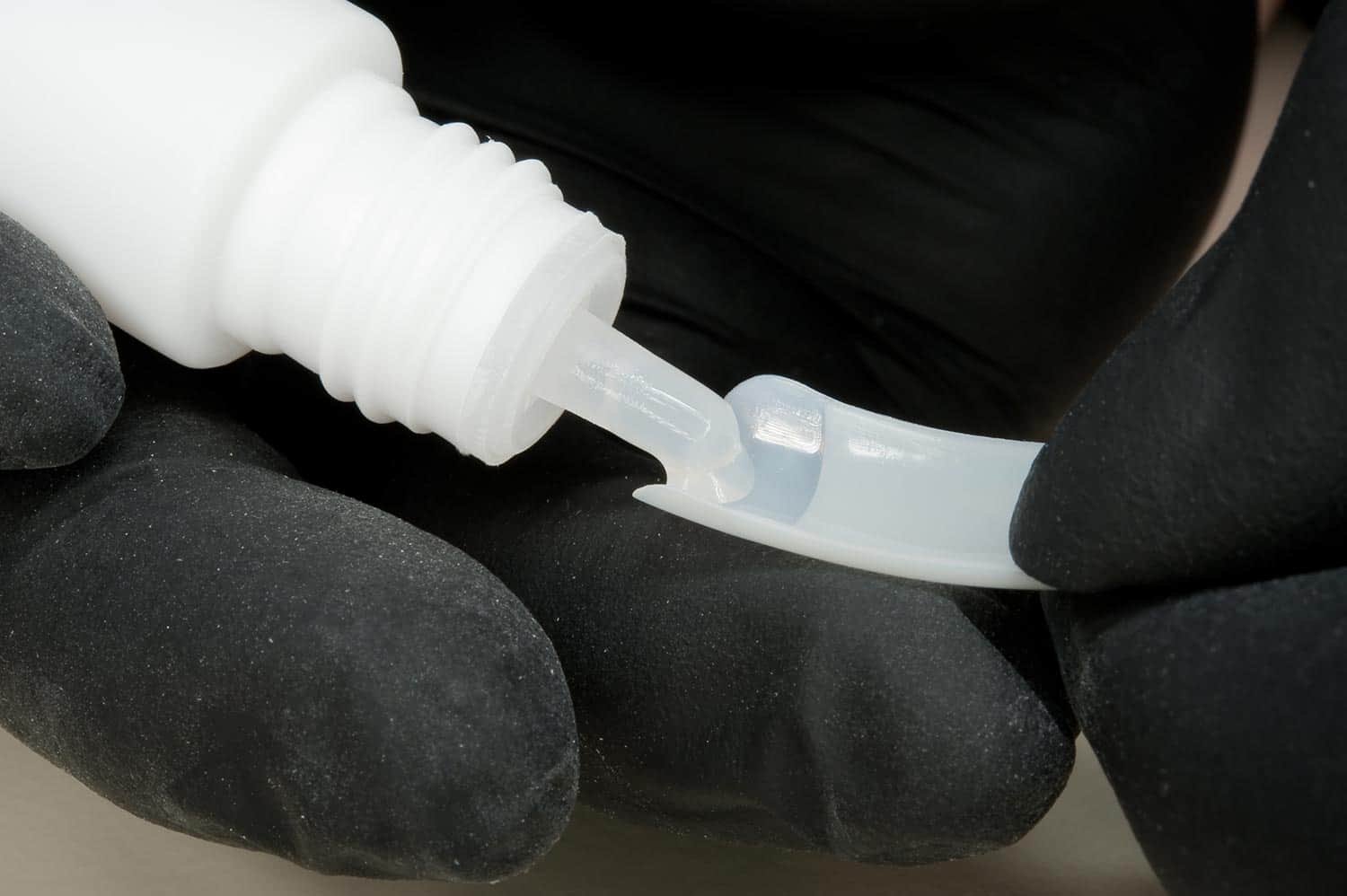
Nail glue is less runny than Gorilla Glue which is another added benefit. Even in small amounts, using Gorilla Glue is just asking for a sticky mess. Gorilla Glue's thin, water-like consistency makes it hard to use and control. Nail glue is a little thicker and easier to manage, especially with a handy-dandy nail glue brush that often comes with nail glue.
Final Thoughts
Buy the nail glue. It is as simple as that.
Click here to view nail glue on Amazon.
No, you will not die if you use superglue. No, you will not die if you use Gorilla Glue. However, the difference may be a few dollars in exchange for a better overall experience.
Gorilla Glue being way too strong and unhealthy for use on your body, causes damage to your nails, making them weaker than ever, and leaving you right back in your junk drawer looking for more glue.
Superglue, all be it handy, is also dangerous and infectious to use.
Do your research if you insist on using superglue or Gorilla Glue on your nails. Make sure you know what you are getting yourself into. Also, follow a few simple steps.
Make sure you thoroughly wash and clean your hands and nail beds. Make sure your hands are dry to ensure you do not forcefully trap water. File and prepare your nail for glue application- be your etching agent. Apply carefully and conservatively. Finish the job by cleaning up with alcohol or acetone.
Hopefully, nail glue is on your shopping list!
For more articles like this one, please visit:
Can You Use Clear Nail Polish On Polymer Clay?



